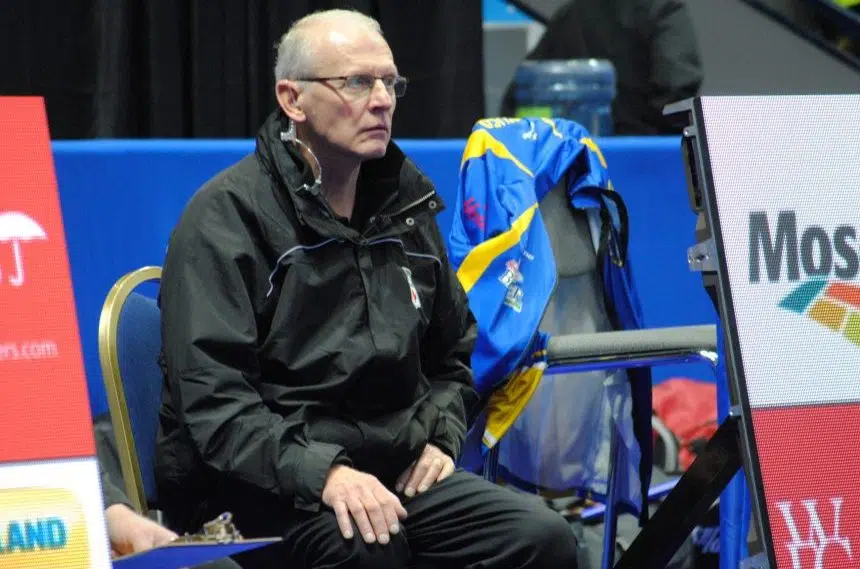When it comes to Olympic veterans at the Tim Horton’s Brier this week, they’re not just on the ice — there’s also game umpire Ken McArton, from Dilke, Sask.
He’s one of the men and women in black jackets who sit just behind the scoreboards watching every move in the games and making sure the rules are followed.
McArton said he started with volunteering to do stats and timing in provincial events about 30 years ago, and he worked his way up from there.
“I was assigned to many events in Canada by Curling Canada now, and so you get on a list of umpires in your country.”
Then, McArton said he was assigned to do international events in Canada by the World Curling Federation.
“I got a chance to work at the Paralympics in Vancouver for world curling, and I’ve done quite a few events since then.”
He’s been all over the world to umpire, including the Sochi Olympics in 2014, and the Pyeongchang Olympics which ended just a week-and-a-half ago.
“It was great. It’s a big show for sure. It’s a huge event, it was very well run. Our venue, the curling venue, was well-attended by fans and we were well-looked after by the volunteers.”
McArton says the greatest experience was probably the Olympics in Korea, but he also said it’s hard to compare.
“The most important (event) is the one you’re at, and so you have to treat everyone the same … and obviously, the Olympics was a big deal to every country and every player, but at this level it’s a big deal too.”
In the 30 years he’s been doing this, McArton said there have been a lot of changes — like the sensors on the rocks which can tell whether the curler is still hanging on to it when they cross the hog line.
He said he was at the first event the sensors were used in 2002.
“After doing several Briers where we sat on hog lines, four people, day-in-day-out, to try and judge the hog line violation. But, when the sensors were developed and brought into use, (in) 2002, it was a big relief for umpires.”
But one thing that’s been constant through the decades, McArton says players aren’t always happy to see him when he has to get up from his seat.
“That happens quite often, they don’t realize how close they are in the moment of the throw.”
And sometimes, if he has to pull a rock out of play, McArton says it can change the outcome of a game.











